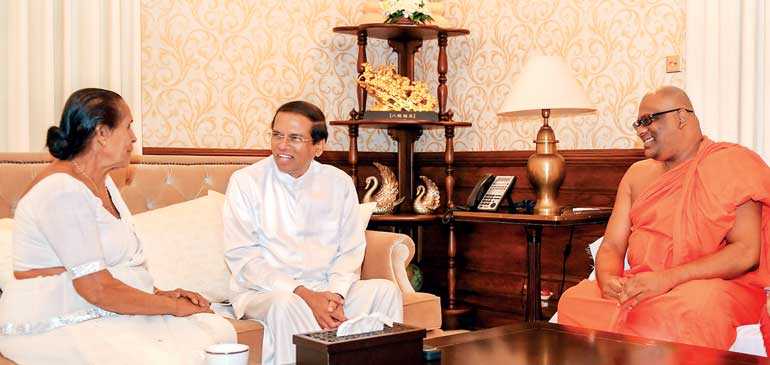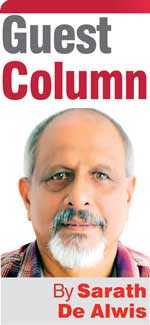Wednesday Feb 18, 2026
Wednesday Feb 18, 2026
Wednesday, 29 May 2019 00:00 - - {{hitsCtrl.values.hits}}

We are back in primitive tribal times. The power of pardon is a feature of human society with ancient roots. It originates from the tribal custom exercised by the tribal chief to soften the harsh rigour of embedded tribal customs.
Under civilised constitutional governance all power is derived from the people. The ‘state’ is only the ‘instrument’ through which the sovereign will of the people is exercised.
Although it may appear that, this time around, the decision is driven by primal tribal instinct of the chief of the tribe with some advice from ‘witch doctor,’ the Executive power to pardon held by the President of the Republic stems from an exceedingly more refined principle.

Judges and courts of law are subject to the “regularity and rigidity of their accepted time-tested proceedings”. The business of the judge is strictly to apply the law.
The prerogative of the Executive pardon is only a constitutional devise that enables to redress the unjust application of the law in a given situation.
I am not a lawyer and I was appalled by the pardon granted to the Buddhist monk Galaboda Aththe Gnanasara Thera by President Sirisena. I try to follow the dictates of the Buddha. If there is an afterlife, I would follow them again. But I fervently pray not to be born in this ‘Sinhala Buddhist Land’.
Disoriented by the fiendish fantasy of an elected Caligula, I addressed the following question to Dr. Nihal Jayawickrama.
He is a legal scholar of wide repute. He himself was once subject to the rigidity of a blatantly unjust law passed by a ‘runaway’ Legislature with a warped mandate whose devilish devises we are still struggling to unravel or disarm.
The monk was not jailed for his presumed foresight in identifying sources and places of Jihadist terror. So my question was unambiguous.
“The ‘rule of law’ presumes that courts of justice have an inherent power to punish all persons for contempt of their rules, orders and for disobedience of their process, and for disturbing them in their proceedings. That is what the monk did and that is what he was punished for.
Can the President exercise his presidential prerogative of pardon in this instance without the concurrence of the bench that affirmed the conviction and sentence on appeal? Has the President violated his oath of office which binds him to uphold and protect the Constitution?”
This is the response I received.
“Article 34 of the Constitution provides that the President may grant a pardon or remit the whole or any part of the punishment imposed for an offence. Except in the case of a person sentenced to death, where the President is required to obtain reports from the Judge, the Attorney General and the recommendation of the Minister of Justice before exercising this power, he may act on his own in respect of all other prisoners.
“A pardon is usually granted if evidence has later surfaced which indicates that there has been a miscarriage of justice. A person granted a pardon is deemed never to have been convicted. The usual relief granted to a prisoner is the remission of the balance portion of his sentence to enable him to be released from prison, and this is done through a general amnesty. I do not know which method was adopted in the case of the priest.
“To release a prisoner who has been convicted of contempt of court and sentenced to a long term of imprisonment is a direct challenge to the authority of the court. To do so after he has served only nine months of a six-year sentence of imprisonment demonstrates a total lack of respect for the Rule of Law.
“Having regard to the evidence on which this priest was convicted, and especially the absolute contempt he showered on the Judge and State Counsel, and the threats he uttered on a woman who was present in Court, and the fact that the conviction and sentence were confirmed by the Supreme Court, I do not know of any previous instance when the authority of our Judiciary was challenged, undermined and ridiculed by a Head of State in this manner.”
Now it is a done deed. But the distaste lingers.
The monk was not convicted for his foresight in reading the early signs of Islamic terror in the Eastern Province or elsewhere.
If that deserved recognition by the State, the proper procedure would have been to request the ‘prognosticator’ of Jihadist terror, to plead for a pardon for his arrogant waltz before a Magistrate, his tirade in open Court to a State Counsel and his un-Buddhist caterwaul to a mother who was seeking justice for her vanished spouse and father of her two young sons.
The picture of the reprieved jail bird accompanied by his own ageing mother calling on a President whose smirk exuded contemptuous nonchalance is the story of our time.
It beats Lorenzetti’s depiction of the ‘Allegory of Good Government’ in the ‘Hall of the Nine’ in Sienna. The mosaic is flanked by two other paintings illustrating ‘Good Government ‘and ‘Bad Government’.
In the good government painting, affluent merchants ply their trades, people dance on the streets and well-tended fields yield plentiful harvests. The other depicting the effects of bad governance, has scenes of violence, disease and decay. What we experience today.
President Sirisena’s unpardonable interpretation of presidential prerogatives reminds us of the Nazi German legal theorist Carl Schmitt, who notoriously argued that all law ultimately boils down to a single, unreviewable moment of sovereign decision.
The “sovereign,” as Schmitt puts it, “is he who decides on the exception”—the exception being the State of Emergency under whose pressure the regular order crumbles.
Indeed, the regular order today is in a state of crumbling. Should we not take not of it? Should we not also take note of the little mind of Ranil Wickremesinghe and his incapacity to connect his grand vision to the ground realities of the day?
Under this divided dysfunctional regime, further complicated by the perception engineering machine of the Rajapaksa restoration project in the hands of virulently racist professionals, the truth has ceased to be plain or simple.
For practical purposes, despite its complexity of structure it is hard to improve on Aristotle’s early definition of truth: “To say of what is that it is not, or of what is not that it is, is false; while to say of what is that it is, and of what is not that it is not, is true.”
To say it simply, there’s nothing mysterious about the ordinary meaning of truth provided we have truth tellers.
Our problem today is not about truth, but it is about who tells it and how truth is established.
The country, the people are held hostage by two minds driven by ambition and too deranged to think straight by the harsh tick of the clock in this election’s year.
Malevolence competes with incompetence. I will not tell you who is what. Take your pick. Let us celebrate what is left of our democracy.